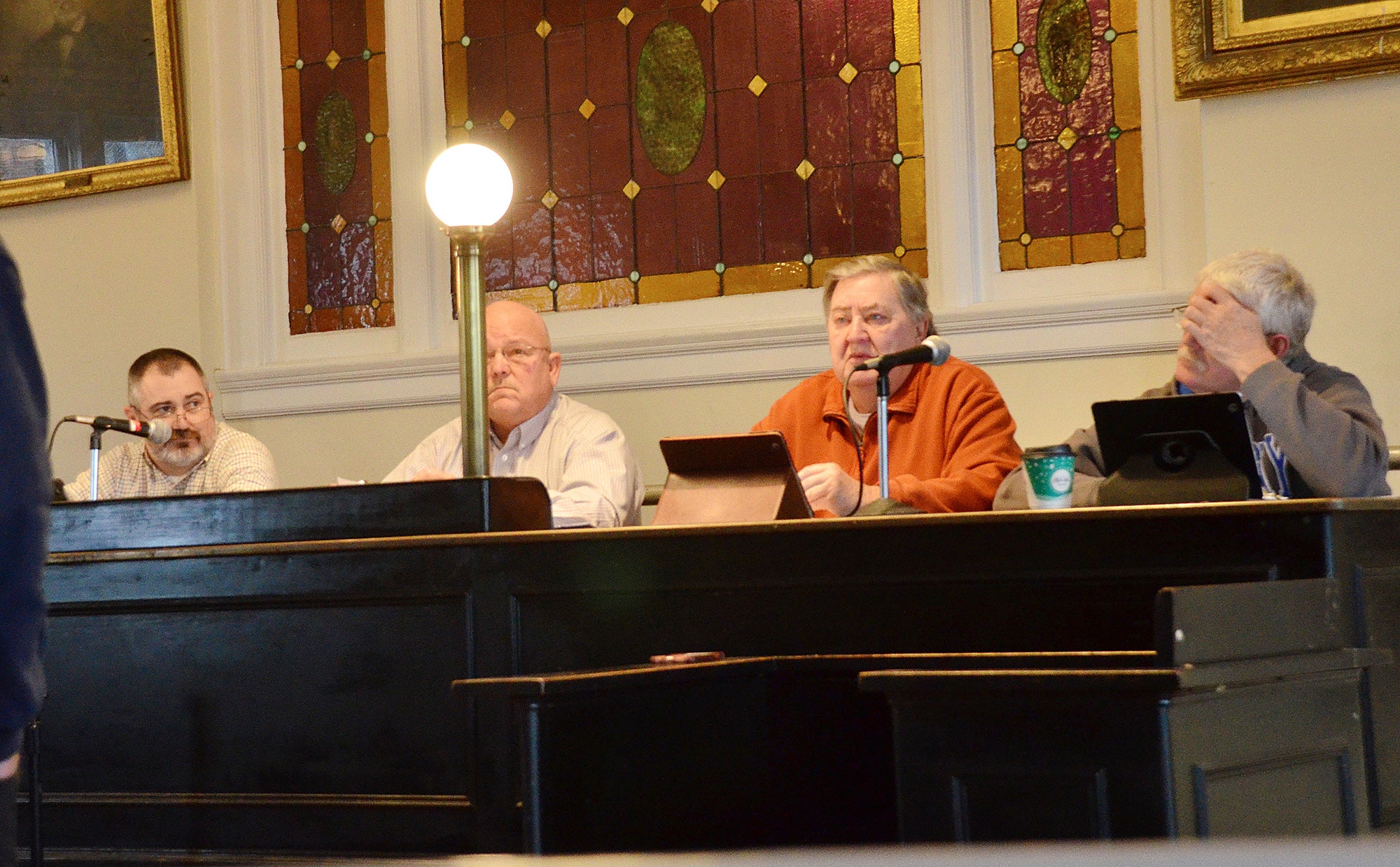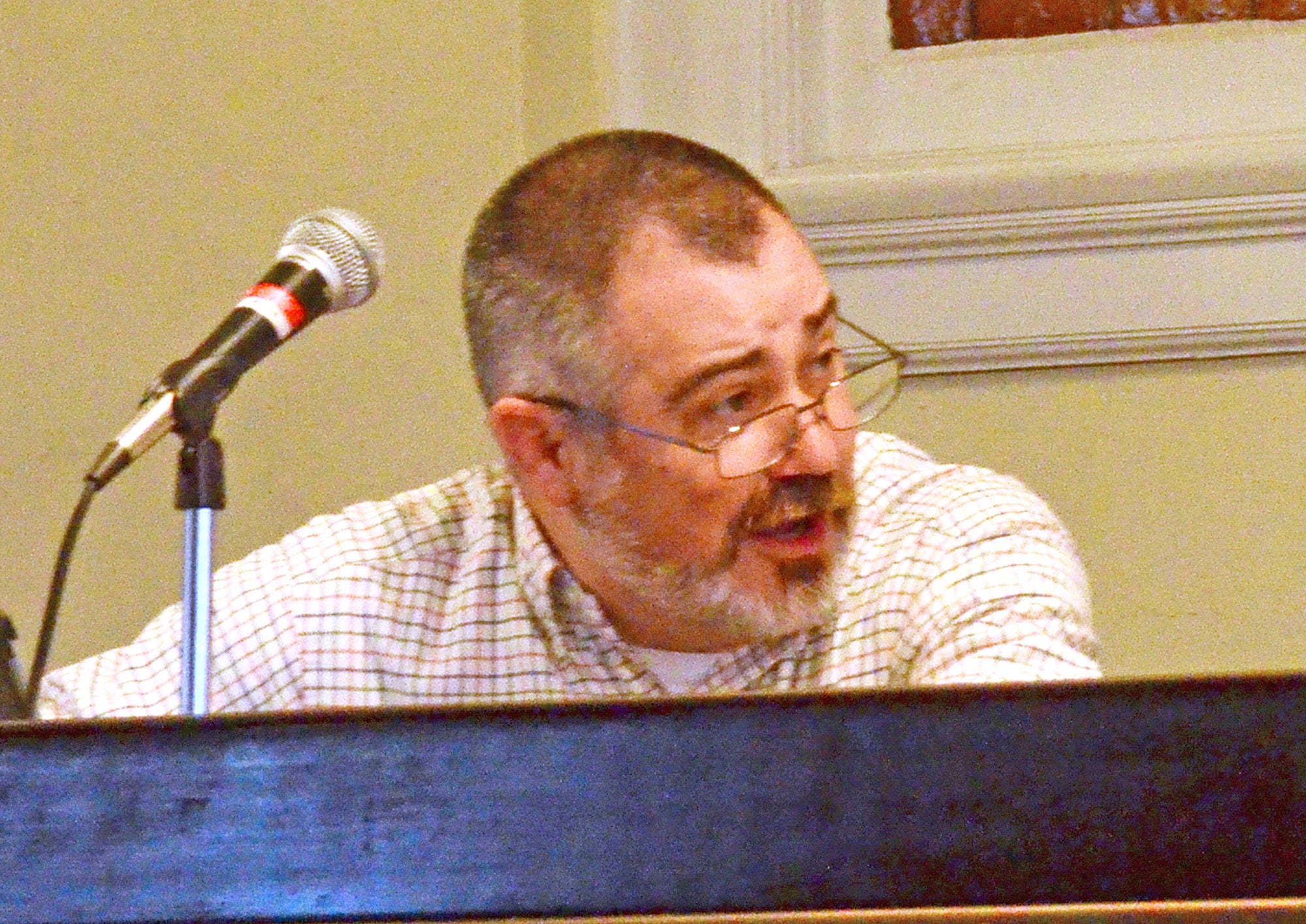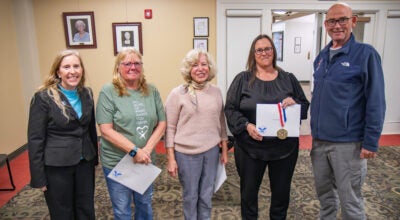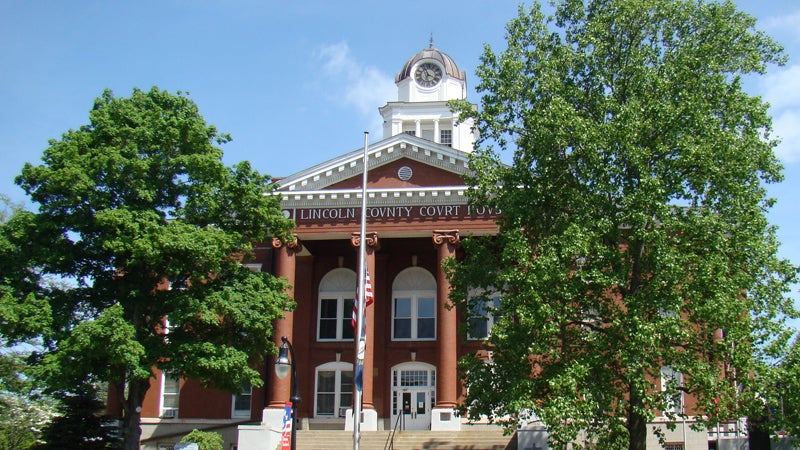Debate on who to call to remove wrecked, disabled or impounded vehicles continues
Published 11:24 am Thursday, November 29, 2018
STANFORD — When a vehicle is involved in an accident, is broken down on the side of the road or is impounded, who you gonna call?
That seems to be the big question when it comes to removing vehicles off Lincoln County roadways.
The question was brought before the Lincoln County Fiscal Court in its Nov. 13 meeting when Terry Bullock, owner of Bullock’s Garage in Waynesburg, voiced concerns on his not getting calls when a towing service was required within just a few miles of his business.
The issue was re-addressed Tuesday morning in the court’s latest meeting
In the Nov. 13 meeting, Bullock called into question the disparity in how towing services are called after losing several business opportunities over the past few years. And he related an incident of a drug bust close to his business that he did not get called on, accusing his local constable of calling his own family’s towing service.
And that accusation was the first topic raised when Judge Jim W. Adams Jr. asked for comments about the towing service issue, with said constable, Delbert Mitchell, Constable of District 3, taking the floor.
“I was told I have family in the tow service, which I don’t. I was told I don’t call Bullock’s Service, but I do,” Mitchell said. “And I read in the paper about a drug bust that I had that I called another tow service. I did make a mistake and lost my temper when the tow truck separated me and my drug bust. He pulled between us and I still had a suspect in the car. I did lose my temper and I did order another tow service. That I’ll agree with. The rest of it – no.”
Mitchell related instances of trying to use Bullock’s.
“Three times I called Bullock’s service. I had 911 call. When got no response, once I told him to go ahead and call Mercer, and once I had them go ahead and call Skytower when I couldn’t get hold of Bullock’s,” he said. “Another time I had a DUI in the backseat of my car sitting there for 20-30 minutes. Four miles up from Bullock’s and it took him 30 minutes to get there.”
Mitchell also recounted an incident on KY Hwy 501 where he called Bullock’s.
“That was another maybe four miles up up from Bullock’s and I had to sit there for 45 minutes.
I finally told dispatch to let Terry know when he got there that he could handle his own tractor because I can’t sit there and stay all day until he decides to show up,” he said. “I’m just a constable. I try to stay fair.”
Eddie “Popcorn” Brown, Constable of District 4, said he had also had an issue trying to call Bullock’s – and others.
“We called 911 and they automatically called for Bullock towing. Actually, called three times and no contact,” he said. “Probably within 45 minutes or something like that, one of his guys showed up and wanted to know why they didn’t get the call. I said I called 911. A few minutes later, I got a call from Mr.Bullock and he says, ‘How come we didn’t get that tow?’ And I says, “We called 911 and they said they tried to get a hold of you three times and couldn’t get a hold of you.’”
Brown said Bullock called him sometime after midnight that evening to say, “I’m not showing no calls from 911 whatsoever.” I told him it was in 911’s hands and they said they did that.”
“It’s happened that we haven’t got hold of other people, too,” added Brown.
County Attorney Daryl Day, who introduced the idea of Lincoln County establishing a policy of rotating towing business at the previous meeting, found Mitchell’s and Browns’ presence as the perfect opportunity to bring up the policy, again, of rotating between towing services.
“Now you’re here and Popcorn’s back there. Do you think if Bluegrass 911 had an ordinance that said they would just rotate it – we don’t say who to call, whoever’s names on the list they just go down and check them off as they go – would that help fix things?”
Mitchell didn’t have a yes or no response to the question.
“If that’s how they want to do that, that’s alright with me,” he said. “I usually call who is the closest. If something needs to be cleared off the road real quick, I want the fastest. You know yourself, on 501, you can’t just be sitting there and have the road blocked.”
“I’m just saying that’s how Garrard County does it. It’s purely on a rotational basis,” Day said. “And I don’t know that they get the complaints that we get about it in any way, shape or form. Do they Russ (Clark – Bluegrass 911)?
Clark confirmed that Garrard does not see the large number of complaints as seen in Lincoln..
“He’s the guy that sent me the ordinance that Garrard County uses,” Day said referring to Clark. “That’s what I was working on changing. I think it makes it a lot easier for them (911) in that you just call in and say, ‘I need a wrecker’ and they check off a name on the list and keep going. And then if a service is slow to respond we just take them off the list.”
Hearing that businesses could be removed from the list didn’t sit well with Mitchell.
“I don’t want to ruin a man’s business by taking his name off the list,” he stated.
Day assured Mitchell that that wouldn’t be the case.
“You wouldn’t,” he said. “That would be the fiscal court’s ordinance and 911 at that point. And we make sure that they’ve got their insurance, they are registered with the tax office, they have their DOT number, their trucks have been inspected and things of that nature. We do that across the board for everybody.”
“But 911 will make the call. If they call Skytower, for example, and you call back in a half hour and say, ‘We’ve got to have some help, Skytower’s not here.’ Well, if Skytower doesn’t show, they lose their place on the list.”
Mitchell said he just wants “to get something done.”
“If I’m sitting out there on the road for 45 minutes, I don’t want to knock a man out of work, but I want something done,” he said. “I just want the road clear.”
So Day asked again, “Do you think the rotation basis would work? And is it a good way to do it?
“That’s fine,” Mitchell responded. “The reason I’m here is that I’m a fair person, not like was written in the paper.”
A problem that could arise from going to the rotational policy is the proximity of towing services to where being dispatched. Do you call a towing service that is next on the list that is 20 miles away when a service is nearby?
“Say he (officer) is down in Clear Fork, which is right on the Pulaski line.and the rotation calls for Witte of Moreland, How do you all handle that in Garrard County,” Adams asked of Clark. “Do you call someone closer to the call?”
“Is there a way to do it where the county could be divided into area zones. Like West side, East Side, North End, South End,” Day also inquired.
Magistrate Joe Stanley said he understands using the rotational policy but also sees a need to call the closest service.
“I try to see both sides of this. But you’d think that probably the number one thing in a wreck, especially if the road is blocked, is to get the road cleared as soon as possible,” he said. “You wouldn’t want to call somebody that had to come 20 miles if somebody was there two miles.”
Magistrate David Faulkner says he feels the call to a towing service should be 911’s call.
“As a public servant, I don’t want the responsibility to make that phone call to any commercial entity. You eliminate any sense or appearance of any impropriety if you just let 911 make that call.That’s what they do,” he said.
When the question of knowing which towing service would be closest to a scene was raised, Faulkner said 911 knows.
“They should be able to identify where a call is coming from. Maybe we could have an area map that shows who is the closest to where the call is coming from. It just seems to me that we eliminate a whole lot of questions if we leave it up to the government entity, 911, to do that rather than an individual,” he said.
“I think this ordinance clears all that up,” Day said. “911 has all records. This will make it easier, in my opinion. I think it’s easier to call 911 and say, ‘Send me a wrecker,’ than sitting out on the road trying to get hold of a wrecker service.”
Lincoln County Emergency Management Director Don Gilliam asked the court to take a good hard look at the issue before taking “discretion from the officer.”
“I would just advise caution on restricting or eliminating all discretion from the officer,” he said. “There’s a lot of situations where waiting 30 minutes is not a good idea. There’s a lot of situations where, if I were to impound that vehicle for a specific reason, what facilities exist that are going to be suitable for that task. You have people that request wrecker services three counties away. You have tractor-trailers that require wrecker services that we don’t have. So I would just advise caution.”
Adams said the court will take its time before making any final decision on the issue.
“We’ll have this discussion further. We don’t need to have a knee-jerk reaction over one discussion,” he said. “We need to think about it and come to an agreeable solution.”
Before the whole towing issue was tabled, two related questions were raised.
The first question was, “Can individuals in accidents choose which service they want to call?”
“If it’s an accident scene, because it is your car, it’s your choice,” Day said. “If the police are impounding your car because you are using it to haul drugs across the county, I don’t think you have a choice then to send it to your brother to haul to his house so he can get the rest of the drugs out before they search it.”
The second question was, “Is there a standardized rate?”
“I’m not a proponent of big government and us setting the rates, but I will tell you you all don’t hear the complaints. The complaints I here in my office are, “My best friend’s brother’s car got towed by this company and they went to get it and it was $170, and my car got towed and I went to get it and it was $570. And I actually had one where the tow company, come to find out, it was a relative of his that was involved in the accident and he had both cars. He was telling the driver of the car that was involved in the accident with his relative, that he had to pay to fix the relative’s car before they could get their car out.”
“I literally had to send a state trooper over there and threaten the guy with arrest.
He said, ‘Well, they were at fault in this accident.’ But he doesn’t get to make that determination. We’re going to get to a point where it’s much like taxi rates in New York City, where you’re going to get enough complaints that you go, ‘Well, here’s the deal on what you can charge.’
If somebody’s involved in a one-car accident out here, it takes you an hour to get that car out of the ditch and back to your shop and put it in storage. And you hold it for two days before they come pick it up. You cannot charge them $1,000. But there are situations where that’s happened.”
Day said that when he first decided to run for county attorney that he had no clue how much he would be talking towing.
“When I was running for county attorney and the first 10 years I served as county attorney, I never thought that I would have so much discussion about towing and wrecked automobiles,” he said. “But I will also tell you that I never realized how much money there is in towing and storing wrecked automobiles.”







